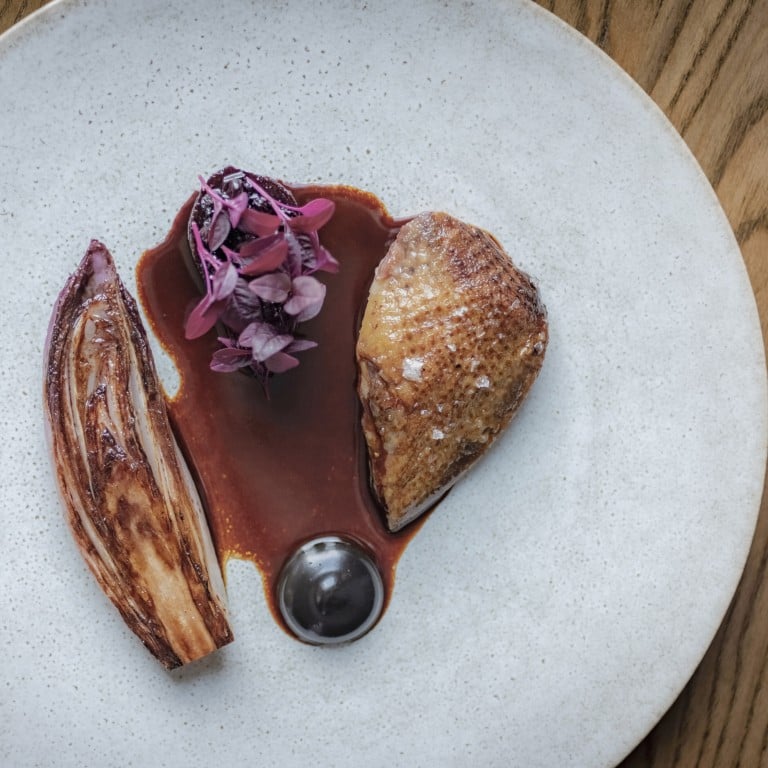Roganic’s farm-to-fork-approach: how the British fine dining restaurant reduced its carbon footprint and paved the way for a sustainable revolution in Hong Kong

- 100 Top Tables’ inaugural Sustainability Hero winner, Roganic Hong Kong turns food waste into key ingredients, grows its own micro herbs on-site and cuts out single-use plastic
- Also the city’s first Michelin Green Star holder, the restaurant has adopted a four-day work week for staff – a pioneering move in an industry known for its long hours
Combining a passion for sustainability with an innovative approach to British cuisine proved to be a winning formula for the chef, who opened Roganic in London in 2011 and, eight years later, in Hong Kong. It’s no wonder, then, that Roganic Hong Kong – a contemporary British fine dining eatery located in the heart of Causeway Bay – earned the city’s first Michelin Green Star, and has now won 100 Top Tables’ inaugural Sustainability Hero award, which recognises the restaurant’s pioneering spirit in what can, at times, be a challenging city to implement sustainable practices.

Roganic contextualises Rogan’s “farm-to-fork” dining approach within a cosmopolitan city setting, bringing the philosophy established at L’Enclume to a new clientele. Developing close ties with leading produce farms and suppliers across Hong Kong allows the restaurant to reflect the best of the season on its menus.
Roganic’s approach to sustainability is manifold, from turning food waste into hero ingredients, celebrating the best in local produce, growing its own micro herbs and reducing single-use plastic consumption.
Our bartender is even working on a recipe for home-made tonic water to reduce our need for bottled drink
But Roganic’s philosophy isn’t only implemented behind closed doors, it’s felt by diners, too. Continuing its commitment to waste reduction has been no easy task, particularly in the midst of the Covid-19 pandemic and a reliance on single-use products to ensure safety and hygiene standards remain high. One step that was possible: menus have been replaced with QR codes, contributing to the restaurant reducing its plastic consumption by 80 per cent.

Meanwhile waste ingredients are repurposed and turned into treasured components of the restaurant’s dishes and cocktails. “We use as much waste product as possible and find value for them, creating a coffee liqueur and caramel used in the cuisine, and drawing flavour from old coffee grounds to infuse in cocktails and bar bitters,” explains Ashley Salmon, who stands at the helm of the Hong Kong outpost as head chef. Coffee grounds, he explains, are then turned into compost with the help of local social enterprise Eco-Greenergy.
But it doesn’t stop there. Pineapple cores and lemon skins, which would ordinarily be discarded as waste after a staff breakfast, become the hero ingredients of the restaurant’s tepache, a Mexican lemonade infused with pineapple, while bottled water is omitted from tables in favour of water filtered in-house. “Our bartender is even working on a recipe for home-made tonic water to reduce our need for bottled drinks,” Salmon boasts.